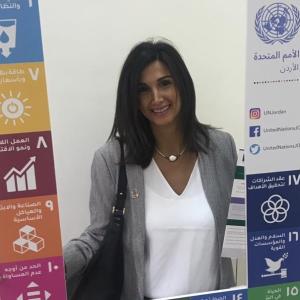FAO and Fal partner to strengthen local institutions and CSOs in climate-smart agriculture
10 March 2025
The training programs will be tailored to the specific needs of the target governorates, emphasizing participatory approaches to ensure the active involvement of local stakeholders.
The Food and Agriculture Organization of the United Nations (FAO) and Fal for Consulting and Management Services are proud to announce the signing of an agreement aimed at providing technical assistance and training to local institutions and civil society organizations (CSOs) in the target governorates of the Building resilience to cope with climate change in Jordan through improving water use efficiency in the agriculture (BRCCJ) Project. This partnership represents a significant step forward in addressing climate change challenges through sustainable and innovative agricultural practices.
The collaboration will focus on introducing and scaling climate-smart agriculture (CSA) practices and technologies to improve water use efficiency in regions heavily affected by water scarcity and climate variability. The targeted interventions include:
- Improved Water Use Efficiency Practices: Promoting techniques such as mulching, strip tillage, intercropping, and Smart irrigation technology.
- Innovative Technologies: Implementing hydroponics systems, wicking beds, Cocoons and drought-tolerant crop varieties to enhance agricultural productivity and resilience.
- Farmer Field School (FFS) Modules: Leveraging validated training modules developed under the BRCCJ Project to ensure knowledge transfer and practical application of CSA practices and technologies.
“This agreement underscores FAO’s commitment to strengthening the capacities of local institutions and CSOs to adapt to the realities of climate change. By equipping them with the tools and knowledge necessary to implement climate-smart agriculture, we are empowering communities to build resilient and sustainable livelihoods,” said Mr. Nabil Assaf, FAO Representative in Jordan.
Fal for Consulting and Management Services brings its expertise in capacity building, technical training, and market-oriented solutions to the partnership. “We are excited to collaborate with FAO to deliver actionable and scalable solutions that address the urgent need for water-efficient and sustainable agriculture. Together, we aim to foster resilience and drive impactful change in these communities,” remarked Mis. Lamia Al-Dabas, the director of Fal for Consulting and Management Services.
The training programs will be tailored to the specific needs of the target governorates, emphasizing participatory approaches to ensure the active involvement of local stakeholders. Through this initiative, FAO and Fal for Consulting and Management Services aim to:
- Enhance the technical skills of local institutions and CSOs.
- Facilitate the adoption of CSA practices by smallholder farmers.
- Promote sustainable water management and resource efficiency.
- Strengthen local capacity to address climate-related challenges in agriculture.
The agreement will soon initiate a series of technical workshops, hands-on training sessions, aim to strengthen the knowledge of CSOs and CBOs on climate-smart agriculture practices and technologies, it will include the training of 120 individuals from 20 CBO/CSOs (5 per governorate at the project target governorates. These efforts will contribute to the achievement of the Sustainable Development Goals (SDGs), particularly SDG 6 (Clean Water and Sanitation) and SDG 11 (Sustainable Cities and Communities).
This collaboration is under the framework of BRCCJ project activities, executed by FAO Jordan. This seven-year initiative aims to enhance climate-resilient sustainable development within the country. More specifically, the project intends to increase the resilience to climate change of water management systems and the farming community.



